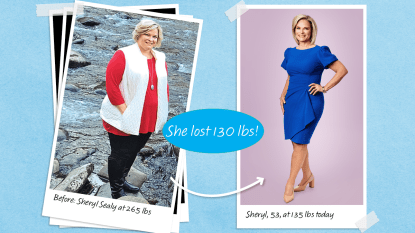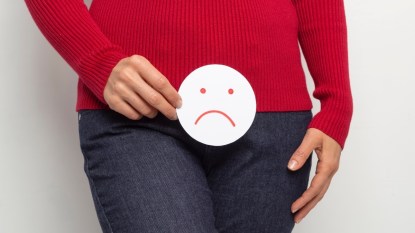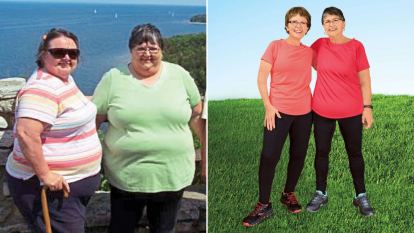Toss Your Health Goals (Sort Of) — Study Says Aging Well Is All About Water
It may give you more good years.

From “eat your greens” to “walk every day,” the recommendations for a long and healthy life are endless. But if we’re being honest with ourselves, many of those tips tend to fall by the wayside as the year goes by. There are plenty of ways to make healthy habits stick, from habit pairing and habit stacking to creating new “rituals” — yet these tricks don’t make good first steps, especially for people who are overwhelmed by a huge to-do list. Instead, you should pick one goal and stick with it. A good place to start? Set the intention to drink more water.
In a study published this January in eBioMedicine, researchers concluded that consistently staying hydrated may slow down aging. It may also give you more “good years” — or years without chronic conditions like diabetes and heart disease. Here’s how.
Understanding the Research
To find out how proper hydration impacts the health of mature adults, researchers from the National Heart, Lung, and Blood Institute (part of the National Institutes of Health, or NIH) collected data from an ongoing US study (known as the Atherosclerosis Risk in Communities, or ARIC, study). They included data from 11,255 adults who had enrolled in the ARIC study in the late 1980s, when they were middle aged. (The NIH researchers defined middle-aged as 45 to 66 years old.)
First, the NIH researchers looked at health data from when the participants first enrolled. Then, they looked at the participants’ health records 25 years later. Specifically, they analyzed serum sodium levels. (Serum sodium levels measure how much sodium is in a person’s body. Sodium levels increase when a person isn’t well hydrated.)
What the Study Authors Found
When the participants first enrolled, some of them had elevated serum sodium levels. 25 years later, those participants were more likely to develop chronic diseases — including heart failure, dementia, chronic lung disease, stroke, and diabetes. Those participants were also more likely to age more quickly and die at a younger age. (How did the researchers measure how quickly a person aged? They looked at biomarkers, or body characteristics that can be measured. For example: Blood pressure and heart rate are biomarkers. If a patient has an elevated blood pressure and heart rate, those are signs that she is aging more quickly than the average adult.)
“The results suggest that proper hydration may slow down aging and prolong a disease-free life,” said Natalia Dmitrieva, PhD, a study author and NIH researcher in a press release.
Things to Keep in Mind
This was an observational study, meaning the results are based purely on what the study authors observed. The NIH researchers could not control certain factors, like the participants’ diets and exercise habits. So, there is a significant chance that proper hydration was not the only reason some participants stayed healthy later in life. In other words: People who drink more water may also be more likely to live a healthier lifestyle.
Still, the NIH study offers good evidence that proper hydration is a key component to healthy aging. Well-established research shows that drinking plenty of water improves energy and brain function, prevents constipation and kidney stones, and keeps your body at an optimal temperature. Thus, staying hydrated is an excellent first goal if you’re trying to develop healthy habits. Here are a few tips to get you started:
- Constantly away from home? Use a water bottle. Find one that has a filter, so you can refill it on the go and always know the water is good quality.
- Hate the flavor? Try these add-ins. If you hate the taste of water, increase your intake by adding a dash of your favorite fruit juice or a flavored electrolyte powder.
- Forget to keep drinking? Set reminders on your phone. Those constant dings will be annoying at first, but with time, you may need them less often.
- Drink some, but not enough? Keep track of your intake. Make a note of how many glasses you drink throughout the day. Or use a clear glass or bottle that has measurements on the side.
Have any extra tips? Let us know below.













